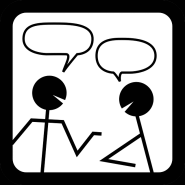In this month’s issue of ED Journal, we explored a few methods we believed would be beneficial to a pupil’s revision programme. Although the majority of the article focused on technological aspects, the use of certain websites for example, there was one suggestion we included that did not require any kind of technology (although it certainly could be incorporated). I would like to look a little more in-depth at this strategy and the theory behind it.
This suggestion was based on the idea of repetition. By this, we mean something different from simply rote learning. We used the example of telling a joke: the first time you hear it and want to repeat it to someone else, unless it’s an incredibly short joke you probably won’t remember it off by heart, so your first attempt you may get the timing wrong, or you fall short half-way through, fuddling the punch line once you have finally reached it.
As you repeat the joke, your delivery gets progressively better. By the tenth repetition your execution is perfect, the timing is right, you didn’t once have to say “no, wait”, and you even get a laugh from your audience (or perhaps a groan depending on the joke itself).
You know it, you understand it, you can repeat it to others and they can follow it. Revision can work in the same way. Repeating the information studied to their peers, family and teachers can give your pupils the preparation they need to transfer the information they learn into a form they can explain. It is the application of knowledge being tested; the process of applying the information learnt is as important as knowing the facts.
If explaining a topic to a parent, a pupil will express it differently than they would to a peer. When writing something down, they will express it differently again; sometimes it is easier to explain something verbally. Although the exam may be written, it is important not to underestimate the value in voicing knowledge effectively through ‘teaching’ others, as this will do wonders to aid the process of understanding.









